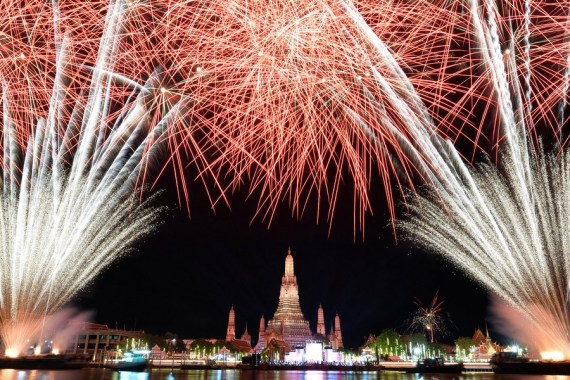
By Jorge Costa Oliveira
Partner and CEO of JCO Consultancy
Under Thai Law (Gambling Act BE 2478 (1935)), gambling is illegal even though the Kingdom permits betting on horse races, a government-sponsored lottery, on some Muay Thai fights. For a long time (at least a decade in terms of public political discussion), there have been rumours of the impending legalization of casino gaming in Thailand. Some nearby countries – Laos, Cambodia, Malaysia, Singapore – already legalized it in order to attract foreign tourists, to diversify the touristic products available and to increase government revenue.
On January 12, Thailand House of Representatives approved (by an overwhelming majority) a report prepared by a special House committee studying the feasibility and economic value of the legalization of gaming in Thailand, including allowing integrated resorts (IR) (“mixed-use entertainment complexes”) with casinos. The report has a comprehensive nature, covering not only several modalities of gaming to be eventually legalized but also social concerns related to the negative aspects of gaming. Following this report, further studies are to be conducted, namely by the government, examining the potential benefits and drawbacks of legalized casino gaming and other modalities of gaming and gambling.
The approval of this report may well be the first step toward the legalization, under an appropriate legal and regulatory framework, of IR with casinos in Thailand. Nonetheless, the political calendar of casino gaming legalization is still uncertain. It is necessary for the Thai government to commit to implementing it. High-level political circles in Thailand consider that, albeit this feasibility report is important in showing wide-spread political support for regulated gaming, no governmental decision will be taken prior to general elections scheduled to take place on the 7th of May of this year. Apparently, only the government emerging from this election will take a decision proceeding to launch legislation regarding the legalization of IR with casinos and other modalities of gaming.
The feasibility report approved by the House proposes that one or more IR with casinos be located in one of the 22 tourist provinces or in the Eastern Economic Corridor (EEC). Some media mention five regions to be allowed to have said IR with casinos.
Apparently, the feasibility report also proposes that access to casinos be restricted to only foreigners and “mature and wealthy Thais”. This is an issue that will certainly be discussed until the latest stages of approval of legislation legalizing IR with casinos.
Curiously, for some, what is worrying is not so much the existence of IR with casinos. For relevant sectors in Thai society, the “real concern” is that this House feasibility report also recommends “the legalization of online gambling such as online bingo, baccarat, betting on government lotteries, the stock exchange index, foreign exchange rates and gambling on the results of international and local sporting events, including horse races and e-sports and, believe it or not, elections.” Apparently, there is a serious concern with “major gambling debts that were wracked up by [Thai] youths during the recent Fifa World Cup”.

Thailand is already a powerhouse in terms of tourism. From 2010 to 2019 the number of tourist arrivals in Thailand increased from 16 to 40 million: from 2015 to 2019 it grew 32.3%. In 2019, 16.6 million came from East Asia (11 million from China) and 10.6 million from ASEAN countries. Then come 6.7 million from Europe, 2.4 million from South Asia and 1.6 million from the Americas, 0.9 million from Oceania and 0.7 million from the Middle East. The numbers of tourist visitors will certainly increase due to IR with casinos and the average expenditure will likely grow in a higher percentage. The main civil aviation hubs of Thailand are the cities / provinces that can benefit the most from this coming legalization of casino gaming. The Bangkok Metropolitan Area is already a fully integrated entertainment area covering a very wide range of fields – e.g., hospitality, retail, leisure. Yet, other tourist areas – such as Phuket, Pattaya, Chiang Mai – in the country, whilst not as comprehensive and in a smaller scale, also boast plenty of entertainment features that can blend well with IR with casinos. Any of these areas has tremendous potential. In fact, many medium-size cities with international flights may benefit greatly with IR with casinos. For many years it is unlikely that China will authorize national low-cost air companies, although tier-2 and tier-3 cities in China keep pressing and getting international flights. This has allowed Thai low-cost air companies to grow significantly with flights to/from China. Until recently (pre-pandemic), most of the Chinese visitation demand was for Bangkok, with some flights to Phuket. More and more, other destinations in Thailand are getting in the radar. More medium-size Thai cities will definitely increase significantly their Chinese (and Asian) tourist visitation if they have an IR with casino.
In case Thailand proceeds towards legalization of casino gaming, it is important to create a proper legal and regulatory framework. Not only because it is the right thing to do, to comply with international standards and to protect its citizens. But also, because large casino operators, their investors and financing entities of sizable investments in IR with casinos need such a legal and regulatory framework in place. While casino resorts may still be a few years from becoming a reality in Thailand, it will take time to set up a proper legal and regulatory framework and probably should be prepared in tandem with the political calendar of legalization.
Casino gaming in Thailand will be legalized, and regulated, at a time when there are already two very large casino gaming centres with IR in Asia – Macau and Singapore. The mass market operation in Thailand will be fuelled by Thai nationals (depending on the entry restrictions imposed by law) and from foreign visitors probably in the proportion of the countries / regions of origin. Given the high propensity for gambling and higher wagers placed by Asian visitors, it is likely that these are the main marketing target group. Assuming Thailand will legalize, and regulate, credit for gaming – as every relevant casino gaming jurisdiction in the world has done, and in order to avoid the reminiscence of underground operations – the VIP segment of gaming has incredible potential. At present the VIP gaming operation in Macau has suffered from the repression and criminal prosecution in 2021 & 2022 of some of the most relevant Macau gaming promoters. Although VIP gaming is far from dead in Macau, the uncertainty arising from this repression and criminal prosecution will remain for years. Singapore, with its beatifically hypocritical posture regarding junkets – only junkets clean as a whistle!… – will never be a desirable market for the Chinese VIP gaming operators and for whom “operational junkets” in external jurisdictions are fungible. For some time, Thailand has a fantastic window of opportunity of capturing a sizable portion (1/3? – 1/2 ?) of this Chinese VIP casino gaming business, whose magnitude is at least one trillion USD in wagers and 30 billion USD in gross gaming revenue per year. If Thai decision-makers are shrewd, they should seize this opportunity and pay significant attention to VIP gaming, without prejudice to other pertinent and relevant matters involved in the legalization of casino gaming.
























